Insect & Pests
All Insect & Pests Content
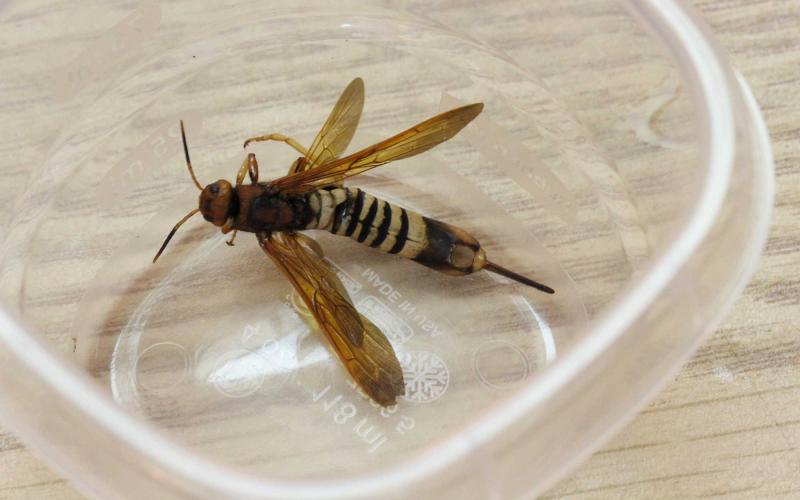
Huge Wasps on My Tree! No, Those Still Aren’t Murder Hornets.
Another insect that has been mistaken for the Asian giant hornet (also known by its media-popularized name of ‘murder hornet’) is the horntail wasp. Horntail wasps are wood-boring insects that are harmless to humans, as they do not have venom and cannot sting.
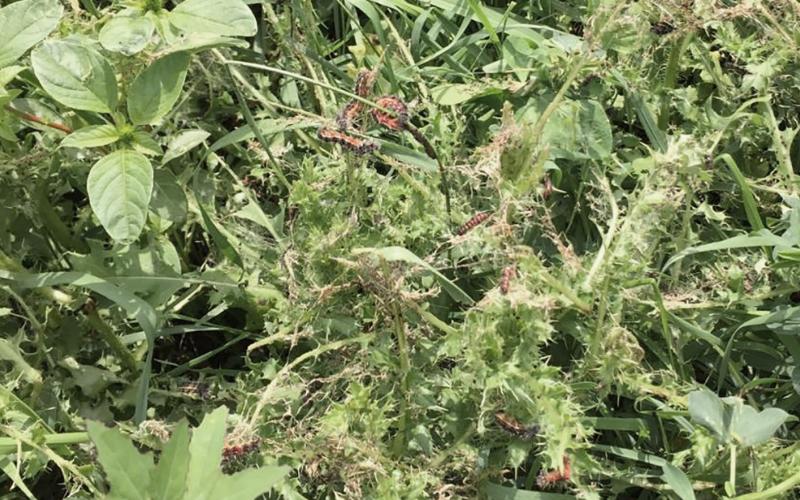
Thistle Caterpillars Showing Up on Canada Thistle
This week we received reports of caterpillars feeding on Canada thistle. After taking a look at the caterpillars, we determined that they are thistle caterpillars. However, we typically don’t see thistle caterpillar activity in S.D. until July or August. So why are they showing up so early this year?
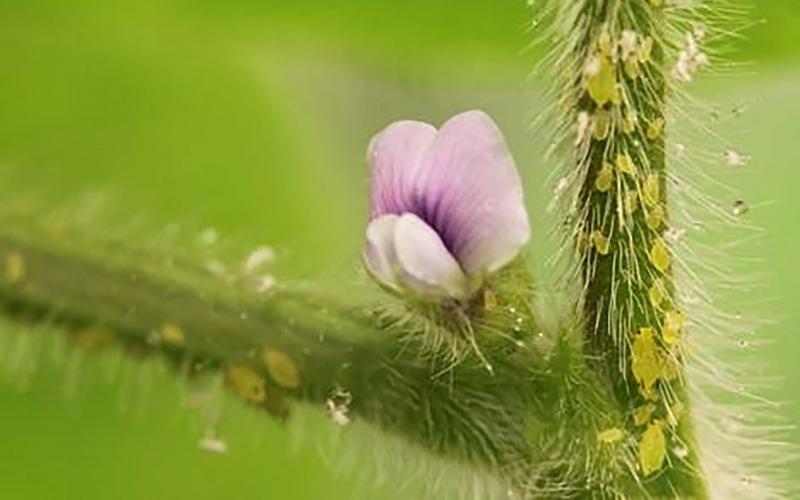
Small Populations of Soybean Aphids Observed in South Dakota
While scouting fields last week, we observed small populations of soybean aphids near Volga, South Dakota. Although no sustained populations were observed, it is a good reminder that soybean aphid scouting should occur throughout the growing season to prevent population outbreaks.

2019 South Dakota Grasshopper Forecast
The USDA Animal Plant Health Inspection Service conducts an annual survey to monitor grasshopper populations in Western South Dakota. In 2018, SDSU conducted a survey to monitor populations in Eastern South Dakota. These previous-year surveys can be used as a prediction tool for where grasshoppers may be an issue during the upcoming season.

Cancellation of Several Neonicotinoids
On May 20, 2019, the United States Environmental Protection Agency announced the cancellation of registrations for 12 products that contain neonicotinoid insecticides. The cancellation of the product registrations was voluntarily requested by the companies that had registered the products.
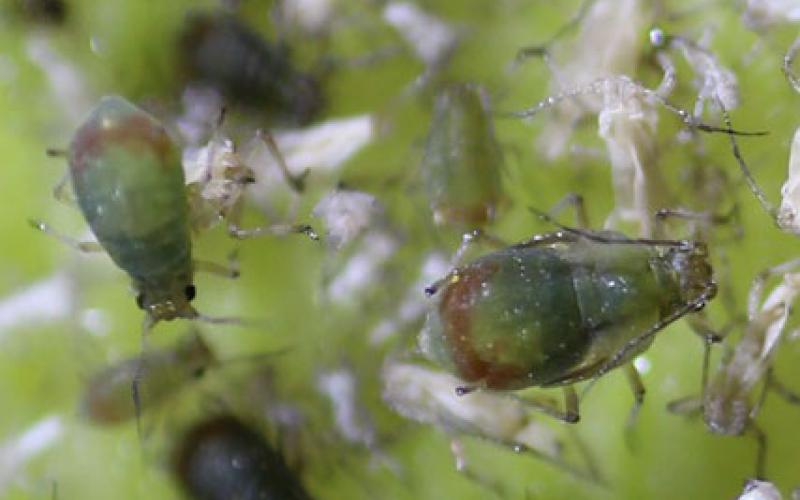
Scouting Winter Wheat for Aphid Pests
Although we cannot predict aphid pressure in winter wheat, there are measures that may be taken to reduce the risk associated with these insects.
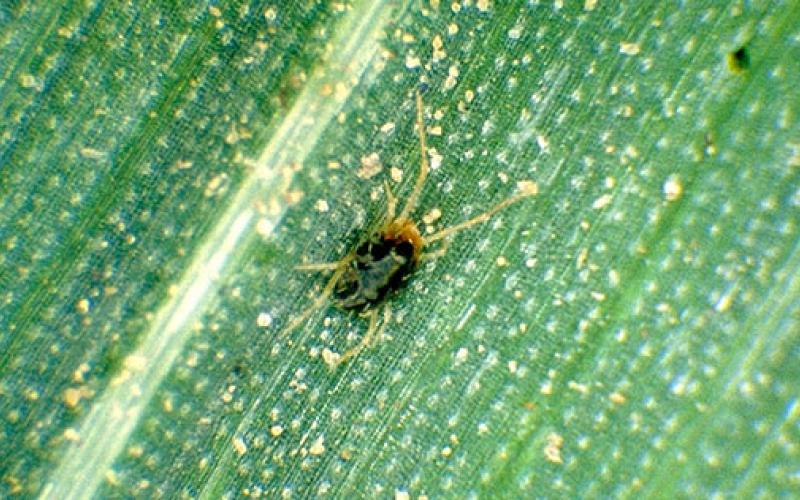
Scouting Winter Wheat for Mite Pests
Winter wheat planting is underway in South Dakota. After wheat emergence, it is important to scout for brown wheat mite and wheat curl mite populations.
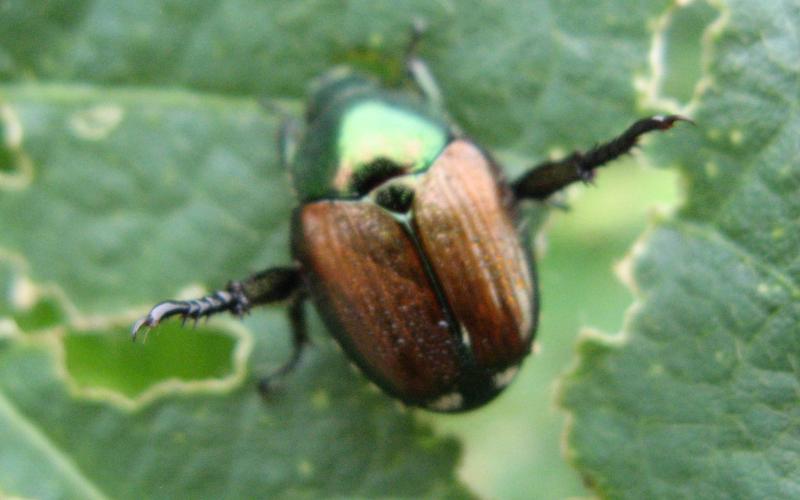
Japanese Beetles
Japanese Beetles (Popillia japonica) are pest beetles feed on trees, ornamental plants and food crops.
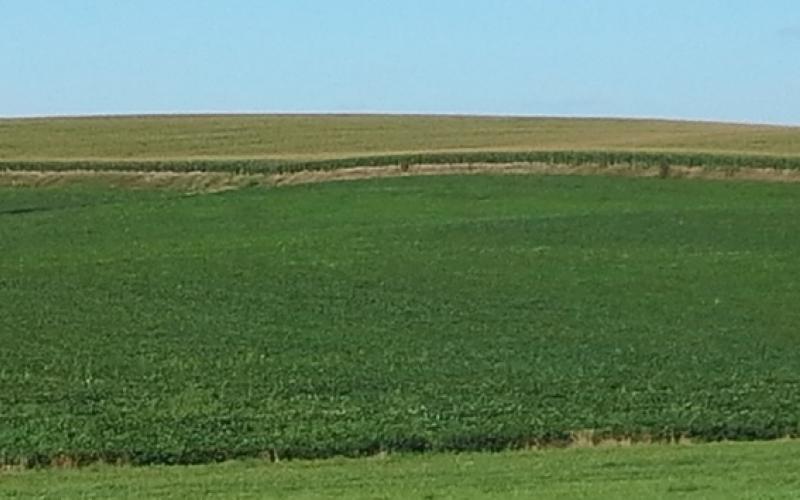
Yellow Soybeans
Yellow soybean areas within fields are being noticed in some areas of the state. There are six factors which could be causing the soybean plant yellowing: nitrogen (N), potassium (K), or sulfur (S) deficiency, iron deficiency chlorosis (IDC), soybean cyst nematode (SCN), or yellow flash from Roundup application.
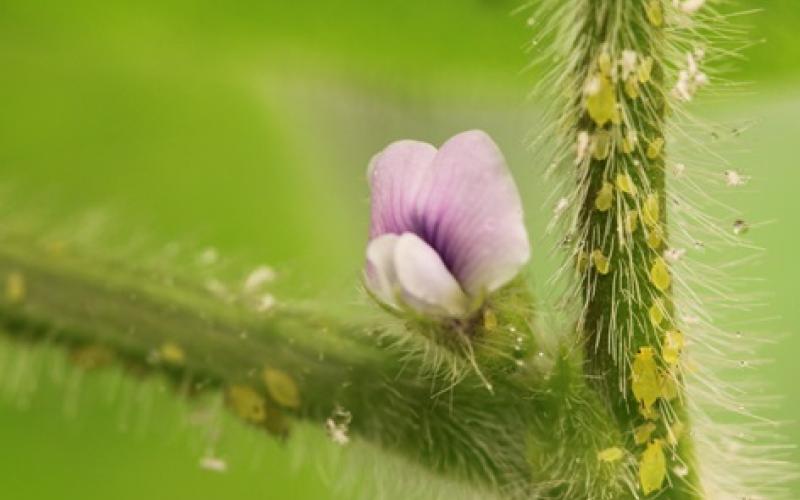
Why the 250 Threshold is Still Appropriate for Soybean Aphids
When gearing up for soybean aphid scouting, it is important to think about the population densities that warrant insecticide management.